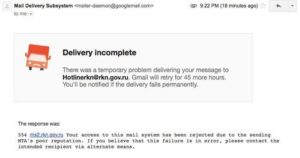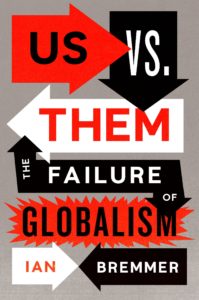The European Commission is set to single out Russia directly for its “information warfare” as part of EU efforts to fight back against online disinformation campaigns, RFE/RL reports. “Mass online disinformation campaigns are being widely used by a range of domestic and foreign actors to sow distrust and create societal tensions,” says the draft communique seen by RFE/RL:
The proposals include “the creation of an independent European network of fact-checkers to establish common working methods, exchange best practices, achieve the broadest possible coverage across the EU, and participate in joint fact-checking and related activities.” The commission will also launch “a secure European online platform on disinformation to support the independent European network of fact-checkers and relevant academic researchers.” It said the platform should “offer cross-border data collection and analysis tools, as well as access to EU-wide open data, such as reliable independent statistical information.”
 The Russian government today blocked the in-depth Russian news site Codaru.com, according to its staff, in what they believe is part of a wider clampdown aimed at the popular messaging service, Telegram.
The Russian government today blocked the in-depth Russian news site Codaru.com, according to its staff, in what they believe is part of a wider clampdown aimed at the popular messaging service, Telegram.
G7 ministers discussed foreign powers’ “strategic threat” to democratic values and institutions through propaganda and disinformation in Toronto this week.
“Foreign actors seeking to undermine democratic institutions and processes through coercive, corrupt, covert or malicious means constitute a strategic threat, which we commit to confront together, and with other countries that share democratic values,” they stated in the “Toronto Commitments,” a statement on defending democracy.
 The ‘big data’ revolution is undermining western democracy while strengthening the hand of authoritarian states, Eurasia Group analyst Ian Bremmer argues in a new book.
The ‘big data’ revolution is undermining western democracy while strengthening the hand of authoritarian states, Eurasia Group analyst Ian Bremmer argues in a new book.
The EU is scrambling to keep the 2019 European Parliament election from being hit by disinformation campaigns and dubious political advertising, POLITICO’s Joanna Plucinska reports: With only a year to go and a fragmented elections system run by member countries, not by the EU, fears are growing that the election will be affected by fake news.
“To fight effectively disinformation campaigns and propaganda, there needs to be strategic communication done by EU and national authorities,” said Dita Charanzová, a Czech Liberal MEP. “I don’t think the election commissions are well equipped and prepared.”
States and non-state groups are openly incorporating into their doctrines the use of information channels for the purpose of destabilizing their opponents, according to a recent conference on the matter. The collective vigilance of the media as well as civil society actors is the only way to preserve the very essence of our democratic way of life, it concluded.
Located in the far Western corner of the Baltic Sea, Denmark does not appear very often on the radar of the pro-Kremlin disinformation campaign, adds EU vs Disinfo. Last week, however, it did.
China’s ruling Communist Party is also upping its disinformation game, as CCP propaganda against Taiwan enters the social media age, says Jamestown analyst Russell Hsiao. A growing volume of disinformation emerges from “content farms” in the PRC.







